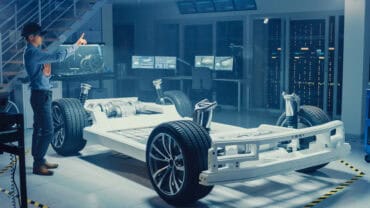
Some cities already have smart waste control systems, and we’re likely to see more.
The trend of smart cities has gained momentum in recent years. Smart cities have a centralized management system that collects data about various aspects of city operations and uses this data in order to have integrated view of system operations and to manage emergency cases, public transportation, and more.
In the next few weeks we’ll drill down into some aspects of smart cities related to real-time control. One major municipality service deals with waste collection and removal. For waste-control systems, there is a collection (putting the waste into containers) and for cities that practice recycling, the containers have different colors according to type of waste, and periodic collection by a waste collection vehicle (“garbage truck”).
When the collection is done on periodic basis then two major problems might occur: A container stays full or even overflows for a long time until collection time; or relatively empty containers are collected. Combining these two problems, the result is non-optimal waste management. In some cases the residents can call the municipality for unscheduled collection if a container overflows, which requires additional expense.
The Internet of Things has provided capabilities that can completely change this domain. Volume sensors can be installed both in containers and in the vehicles. The sensors broadcast constant data using cellular technology. Based on the combined data of vehicles’ available capacity and container data, the waste-control system applies real-time optimization, and dynamically determines the routes of the various vehicles. Thus, a smart waste control system is in effect: dynamic, real-time collection instead of on a fixed-time basis.
There are already such smart waste control systems in various cities, including in the Czech Republic, Cleveland, and Finland, and it seems this will become standard in the next few years. Some companies include Enevo, Plat.One, and Urbiotica, just to name a few.
Want more? Check out our most-read content:
Frontiers in Artificial Intelligence for the IoT: White Paper
The Value of Bringing Analytics to the Edge
Preventing Downtime With Predictive Analytics
Why Edge Computing Is Crucial for the IoT
Liked this article? Share it with your colleagues!




























